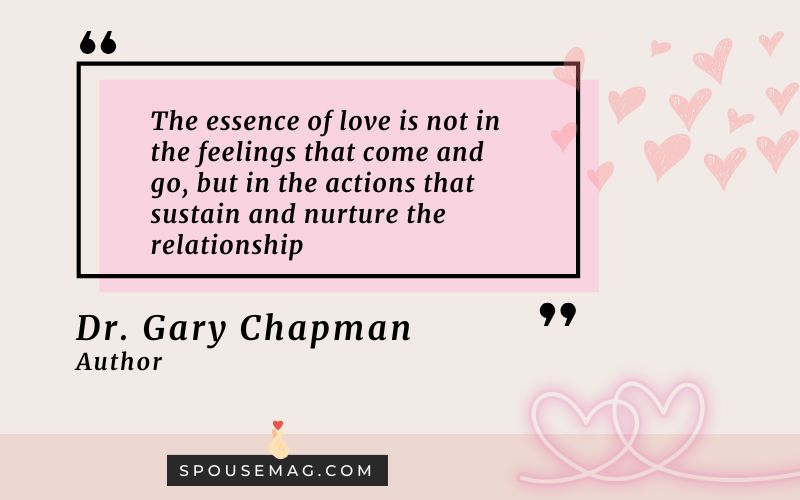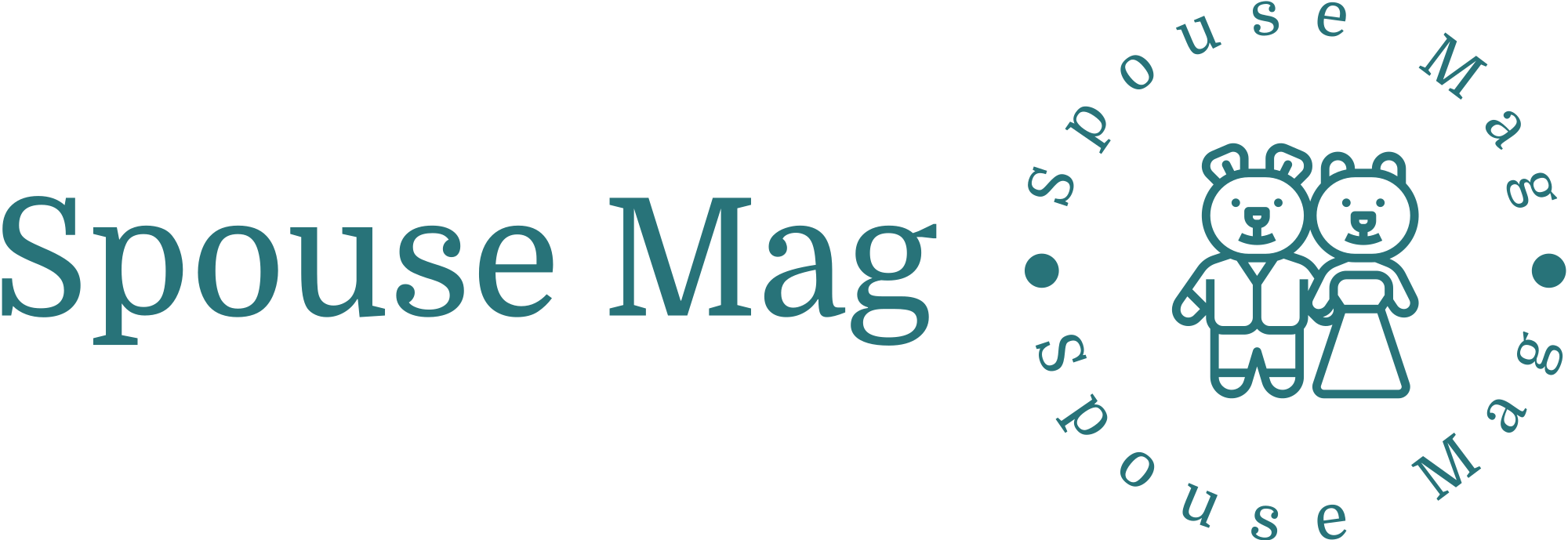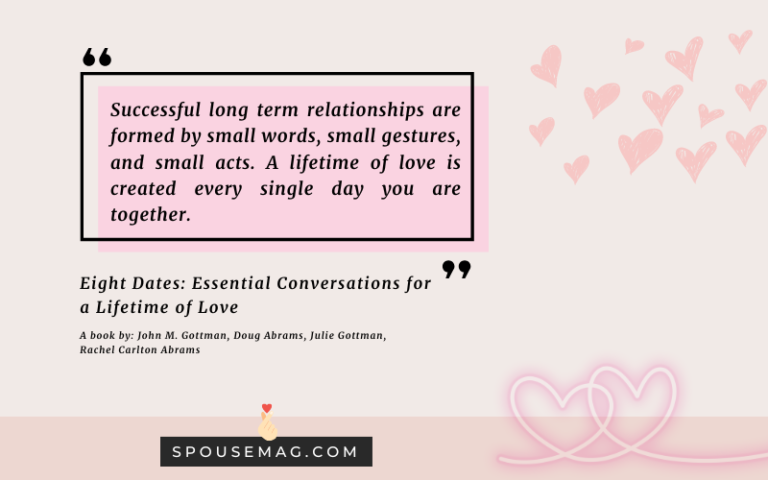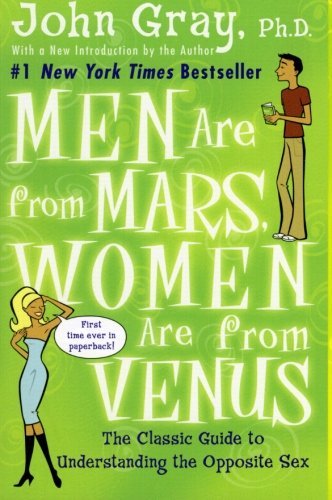In “Loving Your Spouse When You Feel Like Walking Away,” Dr. Gary Chapman offers an engaging and heartfelt guide for couples weathering the storms of marital difficulties. From the moment I started reading, I couldn’t put it down.
He addresses common issues such as communication breakdowns and unmet expectations with compassion and practicality, providing a roadmap for reviving love and rebuilding trust. This book isn’t just a read; it’s a journey through the complexities of love, reminding us that even in our darkest moments, there’s hope and a path forward.
Unrealistic Expectations and Self-Reflection
Chapman starts with the idea that unrealistic expectations often lead to marital dissatisfaction. He suggests that these expectations need to be adjusted through faith and self-reflection.
His point about the disillusionment that often follows the honeymoon phase resonated deeply. We all go into marriage with these grand ideas of what it should be, fueled by movies, stories, and sometimes even unrealistic advice. But when reality hits—when you realize your partner isn’t perfect, and neither are you—it is a tough pill to swallow.
Chapman’s advice to change those expectations through faith and self-reflection is solid. From my experience, this is crucial. My marriage improved significantly when I stopped expecting my spouse to fulfill every need and started focusing on how I could be a better partner.
Critique: Missing Balance of Realism and Idealism
Chapman’s focus on adjusting unrealistic expectations is a welcome change from the often overly romantic view of love. While it’s important to be realistic, it’s also essential to remember that every relationship is different.
For some, a grounded perspective helps, but for others, focusing too much on flaws decreases satisfaction in the relationship. Finding the right balance between being realistic and holding onto some idealism is key.
Embracing a Christ-like attitude
Chapman advocates for adopting a Christ-like attitude in marriage, emphasizing forgiveness, patience, and unconditional love.
Shifting your focus from what your spouse isn’t doing to how you can serve them better is transformative. In my marriage, when I consciously decided to approach my partner with more grace, our dynamic shifted from confrontational to cooperative. This is one of those “aha” moments that sticks with you.
Critique: Overly Idealistic View on Forgiveness
Chapman’s emphasis on a Christ-like attitude seems somewhat idealistic. Not everyone can easily forgive, and for some, this advice feels overwhelming, especially when one partner feels taken advantage of or unappreciated.
Debunking Marriage Myths
Chapman does an excellent job debunking some of the most pervasive myths that sabotage a marriage. One that stood out to me is that your environment determines your well-being. It’s easy to fall into this trap—thinking that if only your partner were different, or your circumstances were better, you’d be happier. I’ve been there, blaming external factors for internal issues, and it’s a dead-end road.
Chapman’s challenge to this myth, encouraging us to take responsibility for our happiness, is empowering. When I started focusing on what I could control—my attitude, my reactions, my personal growth—I noticed a significant improvement in my marriage.
Critique: Overlooking Socioeconomic and Cultural Influences on Relationships
Chapman should have recognized that external factors like socioeconomic status, cultural norms, and societal pressures also significantly influence relationships. Although personal agency is important, it’s crucial to consider the limitations that larger systemic issues impose.

The Power of Positive Thinking
Chapman emphasizes the importance of maintaining a positive attitude and thinking differently to positively influence the relationship. This advice brought to mind several success stories from my practice. I’ve worked with couples who transformed their relationships by shifting their mindset.
I recall a client who, through focusing on positivity and constructive thinking, was able to break out of a cycle of negativity and improve their relationship dramatically.
Critique: Overlooking the Risks of Toxic Positivity
While positive thinking is beneficial, it’s essential to avoid toxic positivity. Some situations require acknowledging and processing negative emotions rather than focusing on the bright side. Moreover, dismissing negative feelings leads to emotional suppression and resentment.
Influence, Not Control
One of the most liberating ideas Chapman presents is that you can’t change your spouse, but you can influence them. This idea was a game-changer for me. For years, I thought that if I pushed hard enough, my spouse would change in the ways I wanted. But all that did was create tension and frustration.
When I stopped trying to control my partner and instead focused on being the best version of myself, I saw real change.
Critique: Does Not Address Imbalanced Contributions in Relationships
My only critique is that Chapman’s advice is frustrating for people in relationships where one partner isn’t doing their fair share. It’s hard to keep influencing and loving when you feel like you’re not getting anything in return. In such cases, more direct interventions, like couples therapy, are necessary.
Love Through Hard Times
Towards the end of the book, Chapman touches on caring for a loved one with Alzheimer’s. This section, though brief, is incredibly moving. Chapman understands the deep pain and exhaustion that comes with this kind of caregiving. His advice to approach this journey with love and patience is both moving and practical.
While I haven’t personally dealt with Alzheimer’s in my family, reading this section made me reflect on the broader challenges we face in marriage, whether it’s illness, financial hardship, or personal struggles. Chapman’s insights remind us that love isn’t always easy or romantic; sometimes it’s about showing up day after day, even when it’s hard.
Critique: Missing Practical Tips for Caregivers
My critique here is that Chapman could have provided more practical tips for those in caregiving roles. While emotional support is vital, caregivers often need concrete advice on how to manage the day-to-day realities of such a demanding role.
Reader’s Thoughts About Loving Your Spouse When You Feel Like Walking Away
Here’s how readers have responded to the book:
Appreciation: Many readers have expressed deep gratitude for “Loving Your Spouse When You Feel Like Walking Away.” They found the book a lifeline, offering hope and practical advice during challenging times. Chapman’s relatable and empathetic tone, combined with his straightforward approach, has resonated with countless readers who felt lost and alone in their marriages.
Criticism: Critics argue the book’s emphasis on a Christ-like attitude and divine intervention may not suit those seeking secular solutions to marital issues. Some readers find the idealistic approach challenging to apply in real-world situations, suggesting that while maintaining a positive attitude and focusing on personal behavior is helpful, these strategies may not always be practical for significant relational difficulties.
Rating: ★★★★☆ (4 out of 5 stars)
Recommendation: I truly recommend “Loving Your Spouse When You Feel Like Walking Away.” It’s a book that feels like a warm hug on a cold day. Chapman’s genuine empathy and practical advice make it a must-read for anyone facing challenges in their marriage. While it’s not a magic cure-all, it provides a solid foundation for rebuilding trust and connection.

As a married wife, founder, and editor of SpouseMag.com – these guides are based on my own personal experiences, observations, research and insights. I am transparent about being inspired by the life and work of the two greatest experts in the relationship space – Dr. John and Julia Gottman, and Harville and Helen. They two are some of the strongest couples, researchers, authors, and counselors when it comes to marriage and relationships. My advice and guides are based on my insights and research, and they are not an alternative to professional advice.




